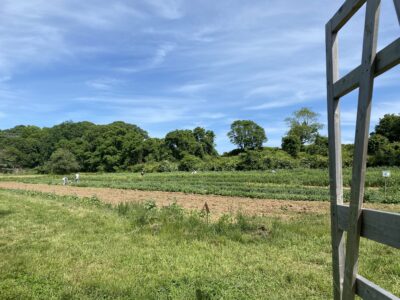Blog
New Septic System Installed
Photo Credit: PW Grosser
One of the greatest threats to Long Island’s bays, ponds, and rivers is high levels of nitrogen leeching into the groundwater from residential septic systems. This has been directly linked to algae blooms and reduced oxygen levels that have devastated our once bountiful marine populations and habitat.
However, by installing the latest wastewater treatment systems, you can help reduce the amount of nitrogen going into the groundwater.
Recently, the Trust replaced a cesspool at one of our properties in Amagansett with a Nitrogen Reducing Biofilter system. The house, used by staff from Quail Hill Farm, is located in the Three Mile Harbor sub-watershed. Because Three Mile Harbor has the poorest water quality in East Hampton, upgrading this property is important.
![block.image[0].title](/assets/images/IMG_4632-Photo-Credits-PW-Grosser.JPG)
Photo Credit: PW Grosser
Studies have found that more than half of the groundwater in the Three Mile Harbor watershed drains into the harbor in less than 10 years. This is good news because renovations made now will quickly lead to an improvement in the water quality. This differs from other areas of Long Island where groundwater can take hundreds of years to travel throughout the watershed.
A big shout out to Stony Brook University’s Center for Clean Water Technology for their help with this project. And also to the Town of East Hampton for providing a grant from the Community Preservation Fund (CPF) to fund the project.
To learn more about this project, contact Matt Swain, Director of Stewardship.
The Peconic Land Trust does not collect or distribute the funds from CPF, also known as the 2% real estate transfer tax. The 2% real estate transfer fee paid by buyers for the Peconic Bay Region Community Preservation Fund goes directly to the Town in which the property purchased is located.


